Keywords: Australian Religious Thought
-

RELIGION
- Frank Brennan
- 08 May 2017
1 Comment
Our Church is presently a strained, outdated social institution with an exclusively male hierarchy and clergy. But it is also the privileged locus for us to be called to the banquet of the Lord sharing theology and sacrament which have sustained the hearts and minds of similar pilgrims for two millennia. Thank God for Pope Francis who is showing us the way, helping us to find meaning in our changing and chaotic world, putting a fresh spring in the step of all those Catholics holding in tension the prophetic and the practical, the theological and the humanist, the tradition and the contemporary reality.
READ MORE
-

RELIGION
- Andrew Hamilton
- 05 May 2017
51 Comments
The government and the Catholic Church both face difficulties when commending values. The difficulties will dog events during the next week in which both institutions are on public display: the bringing down of the budget and the meeting of the Australian Catholics bishops. The question Australians ask is whether the bishops and other public representatives of the Catholic Church have the stomach for the changes in governance needed to address the factors that led to child abuse.
READ MORE 
-
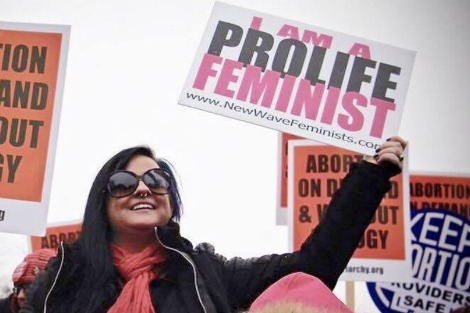
AUSTRALIA
- Kate Moriarty
- 10 March 2017
51 Comments
I'm what you might call a feminist outsider. I'm passionate about the rights of women. I believe every girl should have the opportunity to be educated, and that workplaces need to become more accommodating of families. I spend a worrying amount of time shouting 'You wouldn't say that if she were a man!' to commentators on the radio. I'd like to be called a feminist. But I don't think I'm allowed to be. You see, I also believe a baby is a person before she is born. And I believe that person has rights.
READ MORE 
-

RELIGION
- Bill Wright
- 06 March 2017
4 Comments
Speaking of reform in the church can mean many things. Often it's about practical matters: sorting out the Vatican Bank, changing how bishops are chosen or clergy trained; that sort of thing. Occasionally, however, reform is about seeking real religious change. Martin Luther, I want to suggest, is one of those reformers who was not concerned with tinkering with structures of the church but with reforming the Christian message so that it might reform the believer.
READ MORE
-

RELIGION
- Frank Brennan
- 17 February 2017
3 Comments
The commission's forensic scrutiny of past actions of church officials in no way constitutes an interference with the freedom of religion. Its spotlight is to be welcomed, provided only that it is shone on a truly representative sample of all institutions which have been found wanting and provided the same light filter is applied to all institutions. I do however have a problem with the commission making findings on issues like the want of compassion when those findings are made only against a Church.
READ MORE
-

ENVIRONMENT
- Frank Brennan
- 28 November 2016
'No matter what the economic, political and legal problems confronted by modern day India, our response can be improved by an application of the key principles and norms developed in the international law of trade and human rights, helping to enunciate the realm of law, regulation and political accountability, enhancing public scrutiny providing the right environment for doing business.' Frank Brennan presents the 25th JRD Tata Oration, Xavier School of Management, Jamshedpur, India, 26 November 2016.
READ MORE
-
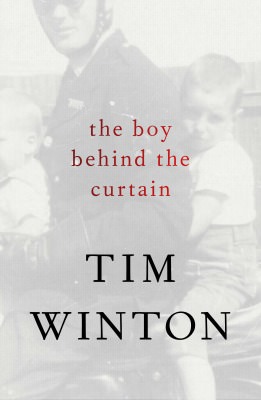
ARTS AND CULTURE
- Tim Kroenert
- 26 October 2016
1 Comment
'When I was a kid I liked to stand at the window with a rifle and aim it at people.' So begins the opening, titular essay. It is a singularly arresting entre to an essay that charts the author's complex relationship with firearms (part awe, part terror), by way of commenting on the place of guns in Australian society. In this collection of essays Winton adopts this mode frequently, weaving (sometimes deeply) personal narratives into stirring, thoughtful commentary on a broad range of social and political issues.
READ MORE 
-

AUSTRALIA
- Frank Brennan
- 13 October 2016
2 Comments
With idealism and pragmatism, I invite you criminal lawyers in the next 30 years to imagine and enact a better criminal justice system which alleviates rather than exacerbates the devastating effects of colonisation and marginalisation on Indigenous Peoples, and most particularly their children. An intelligently designed criminal justice system must help secure the foothold of Indigenous children in both the Market and the Dreaming.
READ MORE
-
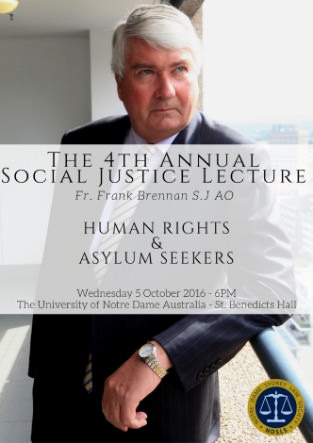
AUSTRALIA
- Frank Brennan
- 06 October 2016
8 Comments
Australia's policy is unique and unrepeatable by other nations because it requires that you be an island nation continent without asylum seekers in direct flight from the countries next door and that you have access to a couple of other neighbouring island nations which are so indigent that they will receive cash payments in exchange for warehousing asylum seekers and proven refugees, perhaps indefinitely. The policy over which Turnbull presides is not world best practice. It's a disgrace.
READ MORE
-
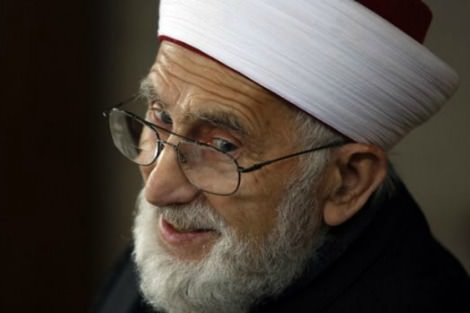
RELIGION
- Irfan Yusuf
- 04 October 2016
11 Comments
Fehmi Naji El-Imam, the former Grand Mufti of Australia who died last month, taught us at a time when we had no internet and books on Islam were limited. Politicised religion was all the craze. In Afghanistan, a coalition of local militias and foreign fighters, the Mujahideen, were receiving support from Western leaders. Conservative politicians praised them for taking on those nasty Soviet Communists. It was easy to be carried away, to have one's faith shaped by overseas events. I almost did.
READ MORE 
-

RELIGION
- Frank Brennan
- 23 September 2016
18 Comments
'No good will be served by a royal commission auspiced by the state telling a Church how it judges or complies with its theological doctrines and distinctive moral teachings. By all means, set universal standards of practice expected of all institutions dealing with children, but do not trespass on the holy ground of religious belief and practice.' Fr Frank Brennan SJ addresses the Freedom for Faith Conference in Melbourne, 23 September 2016.
READ MORE
-
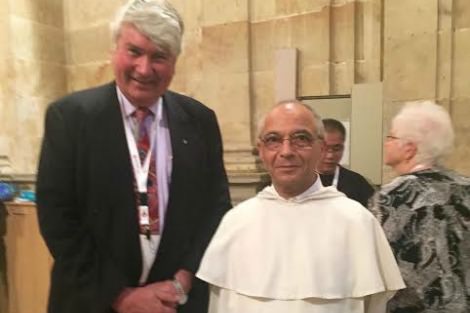
INTERNATIONAL
- Frank Brennan
- 05 September 2016
1 Comment
'I am a Jesuit amongst Dominicans contemplating the Church's view of human rights. I am a human rights practitioner rather than a theologian, aware that human rights discourse is increasingly more universal and secular. Contemplating, preaching and enacting human rights in the 21st Century Church and World, I come asking two questions.' Frank Brennan's keynote presentation in Salamanca Spain to the International Congress of Dominicans in the Promotion and Defence of Human Rights: Past, Present, Future on the occasion of their 800th anniversary.
READ MORE